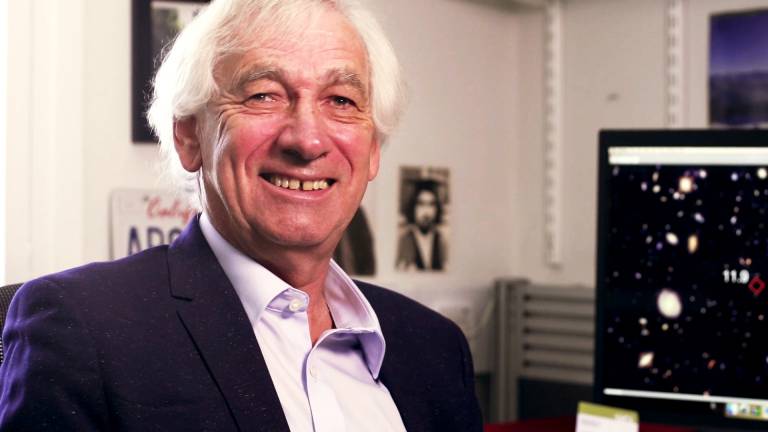Professor Richard Ellis admitted to Australian Academy of Science
24 May 2018
Professor Richard Ellis (Physics & Astronomy) has been admitted as a Fellow and Corresponding Member of the Australian Academy of Science for outstanding scientific contributions to his field.

Professor Richard Ellis is a distinguished astronomer who has made landmark discoveries over several decades. His main area of research is in observational cosmology, studying the origin and evolution of galaxies, the growth of large scale structure in the universe and the nature and distribution of dark matter.
Australian astronomy has benefited greatly from Professor Ellis’s intellectual leadership and generous support. In the early 1990’s, he conceived and developed the science case for the award-winning ‘2 degree Field’ facility on the Anglo-Australian Telescope that produced some of the highest cited papers in cosmology.
This instrument continues to advance Australian astronomy 25 years on. His observational campaigns and creative style opened up the distant Universe to direct observation, inspiring three generations of Australian astronomers to follow in his path.
Professor Ellis is admitted as a foreign member alongside Professor Ruth J. Williams (United States), whose work has had a deep and lasting impact on heavy traffic analysis within the field of stochastic networks.
Australian Academy of Science President, Professor Andrew Holmes, offered his congratulations: “Professors Williams and Ellis join the Academy as Corresponding Members, a special category within the Fellowship, comprising eminent international scientists with strong ties to Australia who have made outstanding contributions to science.”
“My election to the Australian Academy is a great honour”, remarked Professor Ellis. “I have been travelling to Australia for research for over 40 years and continue to value my collaborations with its distinguished scientists.”
The Australian Academy of Science also announced the election of 21 distinguished Australian scientists as New Fellows, to mark the start of Science at the Shine Dome, on 22 May 2018.
Video
Links
 Close
Close

